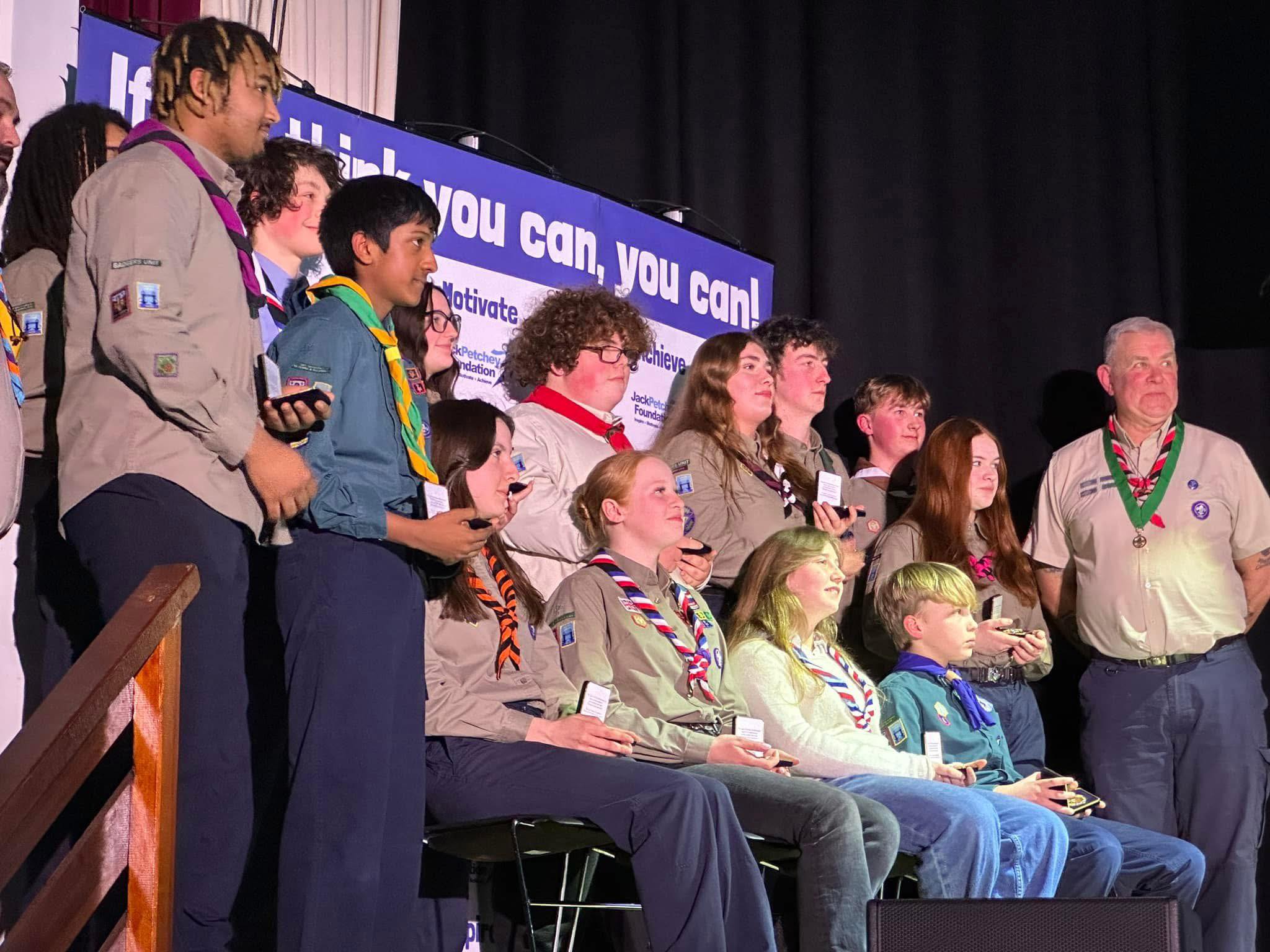Jack Petchey Award Scheme

South London Scouts are proud to be part of the flagship Jack Petchey Achievement Award Scheme, which recognises outstanding young people aged 11-25 across London and Essex, and the Leader Award Scheme which provides an opportunity to recognise the incredible achievements of our adult volunteers.
Young Person Achievement Awards
“The Achievement Awards are primarily about recognising those who put in the effort and do their best - Jack Petchey CBE”
Young people selected should be those who have gone above and beyond, or achieved perhaps where others thought they might fail. Winning an Achievement Award will mean different things for different people – it may represent a personal triumph against adversity, it may recognise a young person who has pushed themselves outside of their comfort zone, it may be the opportunity to recognise the outstanding efforts of a team player who always puts others first.
At the very heart of the Achievement Award is the fact that other young people are encouraged to nominate their peers, so recognising the hard work and efforts. Nominations are also accepted from leaders and parents. Nominations are then reviewed by the Bromley Jack Petchey Team, and winners are then selected and notified.
Winners will receive
- A framed certificate and pin badge
- A letter from Jack with card attached giving them the opportunity to join the JPF Achievers community
- A copy of ‘Notes from Jack Petchey’ – a special A5 book with advice and guidance in the words of Jack himself
- £300 grant to be spent on a something of their choice that will benefit their section or group
Award winners are further recognised by attending the Jack Petchey Celebration Events where they are congratulated on stage in front of friends and family.
PLEASE NOTE: in order to comply with the reporting requirements of the Jack Petchey Foundation, all grants must be authorised and spent by the end of June for Awards received between January and June, or by the end of November for Awards received between September and November.
Leader Awards
The Foundation realises that lots of the great work, projects and schemes that young people are able to access and participate in, would simply not be possible without the support of their adult leaders. In recognising this, they created the Leader Award – a chance for young people themselves to recognise their leaders and say thank you to the ones that inspire and support them, for their dedication and commitment, or particularly those who go ‘the extra mile’ to support young people.
To be eligible for an award, the Leader must mainly work with young people aged 11-25 – in the case of Scouting, this would be the Scout, Explorer or Network sections.
Nominations and selection take place in the same way as for the Achievement Award, but are also sent to the Foundation for approval. Winners of the Leader Award will be honoured at a Jack Petchey Celebration Event with a certificate and medallion and can then apply to Jack Petchey for a grant of up to £1000 to be spent on furthering Scouting for the young people they are involved with.
PLEASE NOTE: in order to comply with the reporting requirements of the Jack Petchey Foundation, all grants must be applied for within 6 months of receiving the Leader Award.
Celebration Events
As a Jack Petchey Award Recipient, you will be invited to a special Celebration Event organised by South London Scouts and Jack Petchey. Here you will receive your official Jack Petchey Winner Medallion, and have the chance to meet other Jack Petchey winners from across the County.
These Celebration Events are held in various places around the County, the date and venue for the next event is shown below. If you have won an award during the time period shown, please CLICK HERE to book your place.
DATE OF NEXT CELEBRATION EVENT: Wednesday 17 September
VENUE: Beths Grammar School, Hartford Road, Bexley DA5 1NE
TIME: Doors open 7pm for 7.30pm start until 9pm approx
OPEN FOR: All winners from 2024 - Adults and Young People


I want to reclaim my Award Grant
Click here to request repayment of an award grant